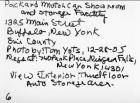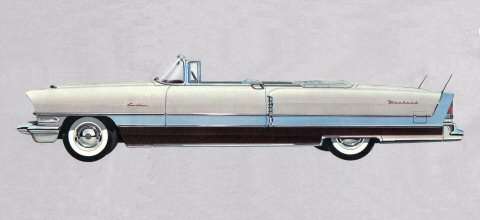|
Re: 1930 7th Series- 320 engine- low compression issue- help sought...
|
||||
|---|---|---|---|---|
|
Home away from home
|
60 PSI may be close to normal for a 1930 engine. Check compression with the throttle open and with a good battery at full charge. Compression readings will be lower at higher elevations. I would run the engine until it has warmed up, then do the compression check. As for starting, it is normal for the engine to need choking on a cold start. If the engine runs well once started, you may have a problem with the choke adjustment, or the carburetor may be leaking fuel when sitting.
Posted on: 2024/4/11 8:15
|
|||
|
||||
|
Re: 1930 7th Series- 320 engine- low compression issue- help sought...
|
||||
|---|---|---|---|---|
|
Home away from home
|
Have you re-torqued your cylinder head several times since putting the engine back together?
Posted on: 2024/4/11 8:52
|
|||
|
West Peterson
1930 Packard Speedster Eight boattail (SOLD) 1940 Packard 1808 w/Factory Air (SOLD) 1947 Chrysler Town and Country sedan 1970 Camaro RS 1936 Cord phaeton packardinfo.com/xoops/html/modules/newbb/viewtopic.php?topic_id=4307&forum=10 aaca.org/ |
||||
|
||||
|
Re: 1930 7th Series- 320 engine- low compression issue- help sought...
|
||||
|---|---|---|---|---|
|
Forum Ambassador

|
To interpret your compression reading of 60 psi we need to know more about it, what altitude are you at and how did you conduct the test (choke and throttle valves wide open, 3 compression strokes to final reading?). Depending on that, 60 psi may be normal, a vintage Chiltons gives 62 psi as standard for the 726-733 motors.
Full choke to start a cold engine is a normal requirement, most especially for updraft carburetion which is more difficult to start cold than downdraft. I'd consider giving my ignition system a good thorough review to make sure it's giving peak performance.
Posted on: 2024/4/11 12:18
|
|||
|
||||
|
Re: 1930 7th Series- 320 engine- low compression issue- help sought...
|
||||
|---|---|---|---|---|
|
Not too shy to talk
|
Spec is 85-87 psi. Full choke is being used on cold startup. Full choke alone is not enough, it needs a push start and pop the clutch or completely block the air intake per the seller.
Posted on: 2024/4/11 17:27
|
|||
|
||||
|
Re: 1930 7th Series- 320 engine- low compression issue- help sought...
|
||||
|---|---|---|---|---|
|
Home away from home
|
I'd look into the cold start issue first. I seriously doubt it is a serious problem, or any internal engine problem. I'd suspect a fuel delivery issue or an ignition issue, or both. The low(?) compression may be related to rings not fully seated, or perhaps stuck rings. The readings being so even is a good sign, as is the fact that the engine runs well once started. The compression may improve with some run time, if it is actually deficient. I'd expect it to. Compression readings up around 60 PSI are more than sufficient for the engine to start and run normally, especially when all 8 cylinders show similar readings. I've run worn out engines that used a lot of oil, yet still started very easily in any weather. Model T Fords start easily with compression ratios down around 4:1. In fact, a T will often start simply by turning on the ignition, with no cranking at all.
Weak ignition could cause the starting issue you are experiencing. You should have a hot spark at all cylinders with the starter motor engaged and cranking the engine. Pushing the car to start it allows higher electrical system voltage which might overcome an ignition system issue such as oxidized points. a weak coil, or a bad condenser.
Posted on: 2024/4/11 20:44
|
|||
|
||||
|
Re: 1930 7th Series- 320 engine- low compression issue- help sought...
|
||||
|---|---|---|---|---|
|
Home away from home
|
85+ PSI sounds high for an earlier car. Ethylized gasoline was not widely available in 1930, if available at all, and low octane, low volatility, kerosene-like fuel limited allowable compression, even with improved Ricardo-type heads.
Posted on: 2024/4/11 20:49
|
|||
|
||||








